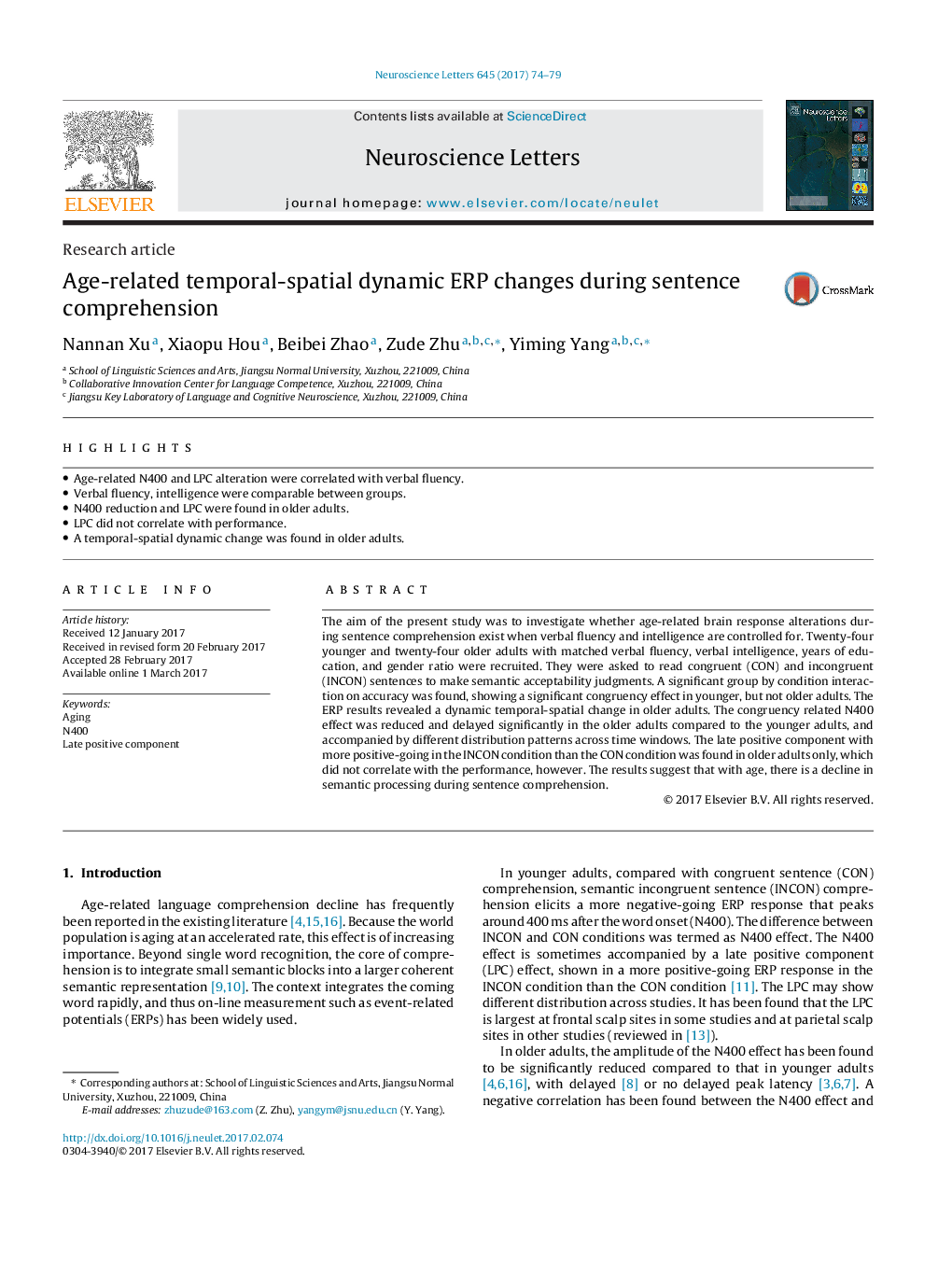| Article ID | Journal | Published Year | Pages | File Type |
|---|---|---|---|---|
| 5738771 | Neuroscience Letters | 2017 | 6 Pages |
Abstract
The aim of the present study was to investigate whether age-related brain response alterations during sentence comprehension exist when verbal fluency and intelligence are controlled for. Twenty-four younger and twenty-four older adults with matched verbal fluency, verbal intelligence, years of education, and gender ratio were recruited. They were asked to read congruent (CON) and incongruent (INCON) sentences to make semantic acceptability judgments. A significant group by condition interaction on accuracy was found, showing a significant congruency effect in younger, but not older adults. The ERP results revealed a dynamic temporal-spatial change in older adults. The congruency related N400 effect was reduced and delayed significantly in the older adults compared to the younger adults, and accompanied by different distribution patterns across time windows. The late positive component with more positive-going in the INCON condition than the CON condition was found in older adults only, which did not correlate with the performance, however. The results suggest that with age, there is a decline in semantic processing during sentence comprehension.
Keywords
Related Topics
Life Sciences
Neuroscience
Neuroscience (General)
Authors
Nannan Xu, Xiaopu Hou, Beibei Zhao, Zude Zhu, Yiming Yang,
